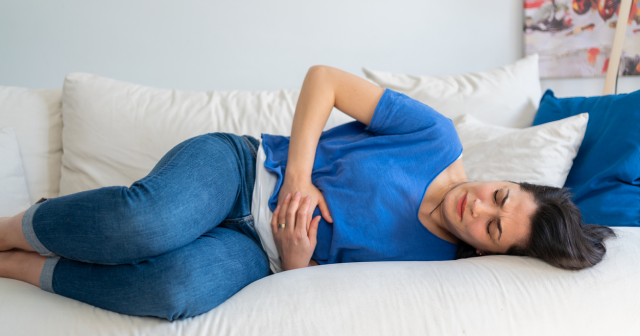Magnetic therapy and menopause
Magnetic therapy involves using magnets to maintain and treat health conditions. Some people use it for back, foot or joint pain. It’s also marketed as a treatment for the symptoms of menopause (when you stop having periods).
Magnetic devices that claim to have health benefits come in various forms: as bracelets, wrist or knee bands, shoe insoles, back or neck braces, and even pillows and mattresses.
Products sometimes known as ‘menopause magnets’ are also sold as devices that can be clipped onto your underwear or taped to your body.
But do they work and are they safe? Read on to find out.
Do menopause magnets work?
People who promote magnetic therapy say the natural magnetic fields made by your body and the Earth can react to other magnetic fields (such as magnets), leading to changes in your body. They believe your body’s electromagnetic field needs to be ‘balanced’ for you to be healthy.
However, there’s no scientific evidence that magnets can treat menopause symptoms, such as hot flushes and night sweats. In fact, several studies have found that magnetic therapy doesn’t do anything to help with menopause symptoms (or any other health condition).
In the UK, the Advertising Standards Authority ruled that a major menopause magnet company should stop making claims about the benefits of their device, due to a lack of evidence.
Side effects of menopause magnets
Menopause magnets aren’t thought to cause problems when used alongside other medications. However, some people should avoid them.
Magnetic therapy isn’t recommended if you have (or have had) breast cancer.
Menopause magnets can also affect the function of some medical devices and implants, such as pacemakers.
Attaching magnets to your skin may cause itching or other skin reactions.
Alternatives to magnetic menopause treatment
There are other options for treating and managing common (and less uncommon) symptoms of menopause, including medication and lifestyle changes.
Hormone replacement therapy (HRT) can be an effective treatment for many of the common symptoms, such as hot flushes and night sweats, low sex drive (libido), vaginal dryness and mood swings. Speak to a doctor for advice about whether HRT is suitable for you.

Eating a healthy diet, reducing stress and keeping fit may help to manage menopause symptoms such as hair loss and joint pain, as well as improving your general health and wellbeing.
Skin moisturisers and antihistamines can reduce irritation from menopause itchy skin.
Speak to your doctor if you’re struggling with menopause symptoms. They can offer advice and may be able to suggest other treatments, including alternatives to HRT.
Key takeaways
- magnetic therapy involves using magnets to treat health conditions
- it’s sometimes marketed as a treatment for menopause
- there’s no evidence that magnets can help with menopause symptoms
- some people should avoid trying magnetic therapy
- treatment options for menopause symptoms include medication and lifestyle changes






